Compare ERP Software
Customize Your "Best Fit" Software Comparison
Compare the Leading ERP Systems
Discover our side-by-side comparison of 16 leading ERP systems benchmarked against Epicor Prophet 21. Evaluate key features, compare pricing, and identify the ERP solution that best aligns your business needs. You can also browse the categories above to explore additional ERP options across industries and popular use cases.
To guide your decision, we’ve developed a comprehensive ERP selection guide. Packed with practical insights and analysis, this resource equips you with the knowledge needed to make a confident, well-informed choice for your ERP investment. Don’t miss our detailed selection guide.

Prophet 21
Price Range
$10,000 +
Cost Per User
$100 - $200
Deployments
-
Cloud
-
On-Premise
Financing OptionsSubscription, License
Minimum Fee to Implement$20,000 +
Installs24,000 +
ArchitectureMiddle Server
Core Features
Customer Relationship Management (CRM)
Access key information from one screen
Contacts integrated with fax and email
Create and follow up on tasks
Customer Master Inquiry
Unique Features
Built for distributors and unique with DynaChange® tools (Screen, Tab, Menu, Navigator, Portals). Integrates with Microsoft Office, supports workflow automation, and covers distribution functions from CRM to WMS. Its dual deployment options give broad flexibility and industry adoption.
Limitations
Complex to implement and customize, requiring consulting support. Less agile and presents challenges for organizations looking to scale seamlessly.
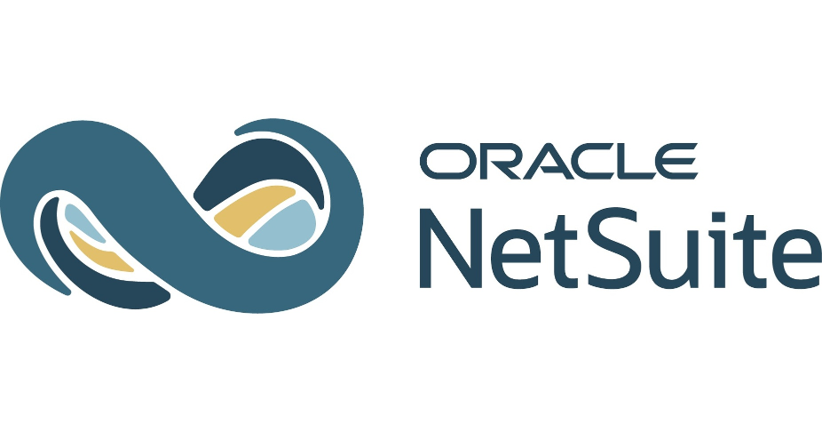
Oracle NetSuite
Price Range
$25,000 +
Cost Per User
$99+
Deployments
-
Cloud
-
On-Premise
Financing OptionsSubscription
Minimum Fee to Implement$10,000 +
Installs40,000 +
ArchitectureMulti-Tenant
Core Features
Customer Relationship Management (CRM)
Access key information from one screen
Contacts integrated with fax and email
Create and follow up on tasks
Customer Master Inquiry
Unique Features
Cloud-native ERP with strong integration and ideal for growing companies. Global multi-company support, advanced reporting, and an extensive partner ecosystem. With Oracle backing, it offers industry-specific editions and analytics in one unified SaaS platform.
Limitations
Not ideal to cost-friendly prospects, through additional add-ons, customization, and advanced setups. Challenges with performance in high-volume transaction environments

SAP
Price Range
$50,000 +
Cost Per User
$100 +
Deployments
-
Cloud
-
On-Premise
Financing OptionsSubscription, License, Leasing
Minimum Fee to Implement$50,000 +
Installs200,000,000 +
ArchitectureModular, Multi-Tenant, Hybrid
Core Features
Customer Relationship Management (CRM)
Access key information from one screen
Contacts integrated with fax and email
Create and follow up on tasks
Customer Master Inquiry
Unique Features
Known for enterprise-grade depth and functionality across industries. Supports global operations with multi-company, language, and currency features. Advanced analytics, AI, and integration with supply chain and industry-specific modules.
Limitations
Licensing and ongoing support fees are among the highest in the market. Smaller organizations find it better suited to large enterprises.
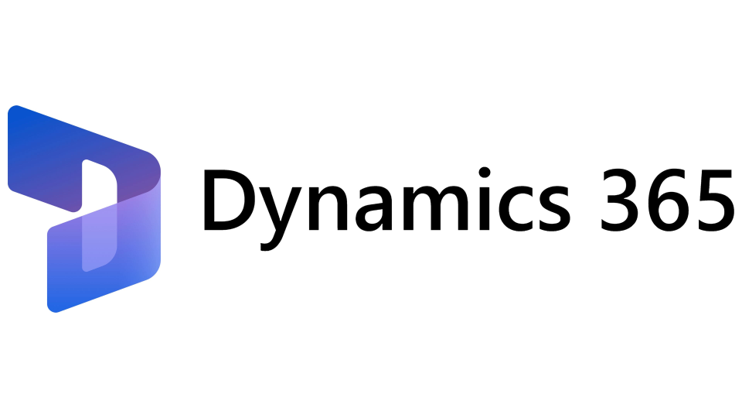
Dynamics 365
Price Range
$30,000 +
Cost Per User
$70 - $210
Deployments
-
Cloud
-
On-Premise
Financing OptionsSubscription, License
Minimum Fee to Implement$20,000 +
Installs100,000 +
ArchitectureCloud, Modular
Core Features
Customer Relationship Management (CRM)
Access key information from one screen
Contacts integrated with fax and email
Create and follow up on tasks
Customer Master Inquiry
Unique Features
Dynamics 365 integrates with Microsoft 365 and Power Platform. Offers flexible deployment (cloud-first, with on-premise options for Business Central) and modular licensing across Finance, Supply Chain, and CRM. Its global partner network ensures strong implementation support.
Limitations
Can be fragmented due to different ERP products not being unified. Performance can delay for large enterprises with high transaction volumes.
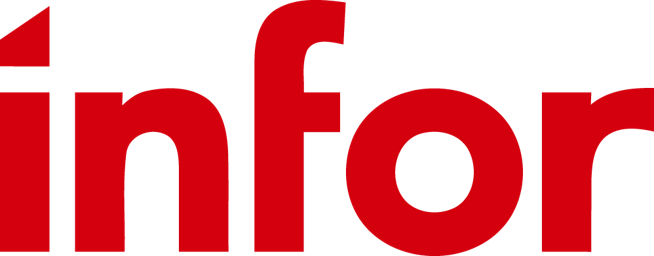
Infor
Price Range
$50,000 +
Cost Per User
$150 - $250
Deployments
-
Cloud
-
On-Premise
Financing OptionsSubscription, License, Leasing
Minimum Fee to Implement$40,000 +
Installs65,000 +
ArchitectureCloud, Multi-Tenant
Core Features
Customer Relationship Management (CRM)
Access key information from one screen
Contacts integrated with fax and email
Create and follow up on tasks
Customer Master Inquiry
Unique Features
Industry-specific, offering tailored solutions for distribution, manufacturing, and service industries. Platform provides advanced workflow automation, and AI insights. The cloud deployment on AWS and ION middleware provides modern integration capabilities
Limitations
ERP ecosystem is fragmented with multiple ERP lines rather than a single unified platform. Lacks global ecosystem in comparison to its competitors.
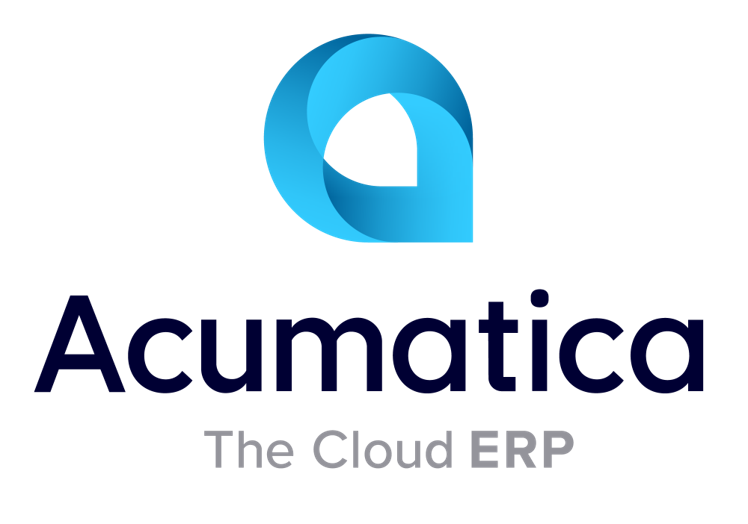
Acumatica
Price Range
$15,000 +
Cost Per User
N/A
Deployments
-
Cloud
-
On-Premise
Financing OptionsSubscription, License
Minimum Fee to Implement$15,000 +
Installs10,000 +
ArchitectureCloud, Modular
Core Features
Customer Relationship Management (CRM)
Access key information from one screen
Contacts integrated with fax and email
Create and follow up on tasks
Customer Master Inquiry
Unique Features
Unique no per-user licensing model and priced through resources. Offers mobile design and structure provides flexibility across finance, CRM, inventory, and manufacturing.
Limitations
Pricing can become expensive from company growth and lack of advanced features. Not a fit for large ecosystems in need of global support.
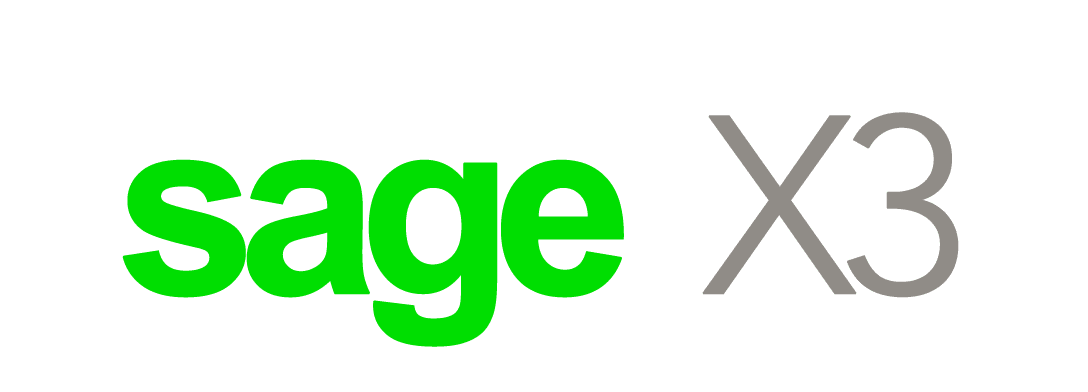
Sage X3
Price Range
$30,000 +
Cost Per User
$100 - $200
Deployments
-
Cloud
-
On-Premise
Financing OptionsSubscription, License, Leasing
Minimum Fee to Implement$20,000 +
Installs7,000 +
ArchitectureModular, Web, SQL
Core Features
Customer Relationship Management (CRM)
Access key information from one screen
Contacts integrated with fax and email
Create and follow up on tasks
Customer Master Inquiry
Unique Features
Mid-market ERP with multi-company, currency, and manufacturing capabilities. Appealing to midsized companies in need of balance functionality and affordability. Offers deployment flexibility and solid financial management.
Limitations
Less modern, outdated, and slower innovation cycles in comparison to cloud-native systems. Not ideal for multinational enterprises due to limited global scalability.

IFS
Price Range
$150,000 +
Cost Per User
$150 - $300
Deployments
-
Cloud
-
On-Premise
Financing OptionsSubscription, License
Minimum Fee to Implement$50,000 +
Installs10,000 +
ArchitectureSOA
Core Features
Customer Relationship Management (CRM)
Access key information from one screen
Contacts integrated with fax and email
Create and follow up on tasks
Customer Master Inquiry
Unique Features
Fit for asset-intensive industries in need of field service, asset management, and manufacturing. Its cloud-native architecture uses microservices for scalability. Offers unique strong industry-specific depth not found in many ERPs.
Limitations
Low brand recognition compared to competitors and lack of skilled consultants. Implementations are complex and resource heavy. Not suitable for small businesses looking for cost-friendly options.
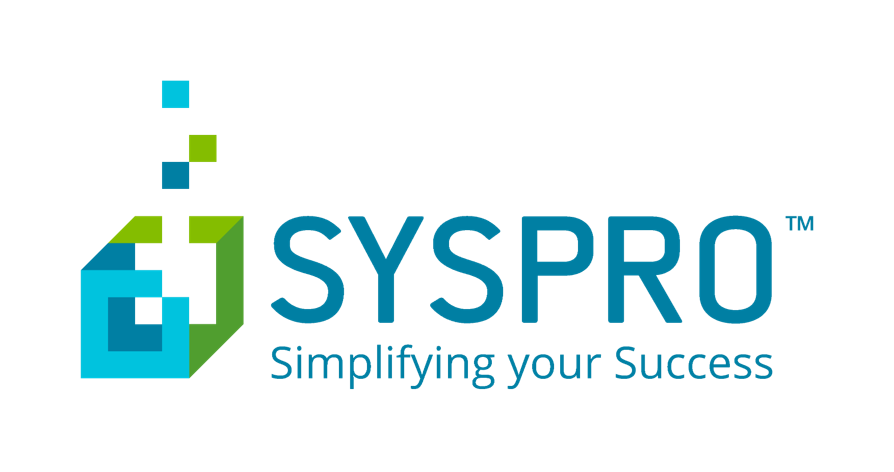
SYSPRO
Price Range
$20,000 +
Cost Per User
$100 - $200
Deployments
-
Cloud
-
On-Premise
Financing OptionsSubscription, License
Minimum Fee to Implement$20,000 +
Installs15,000 +
ArchitectureNET, SQL
Core Features
Customer Relationship Management (CRM)
Access key information from one screen
Contacts integrated with fax and email
Create and follow up on tasks
Customer Master Inquiry
Unique Features
Tailored for manufacturing and distribution midsized companies. Offers functionality in production planning, inventory, and supply chain. Provides flexible deployment options and industry-specific templates.
Limitations
Suited for SMBs rather than large enterprises. Lacks AI functionality and global ecosystem offered by tier-1 vendors.
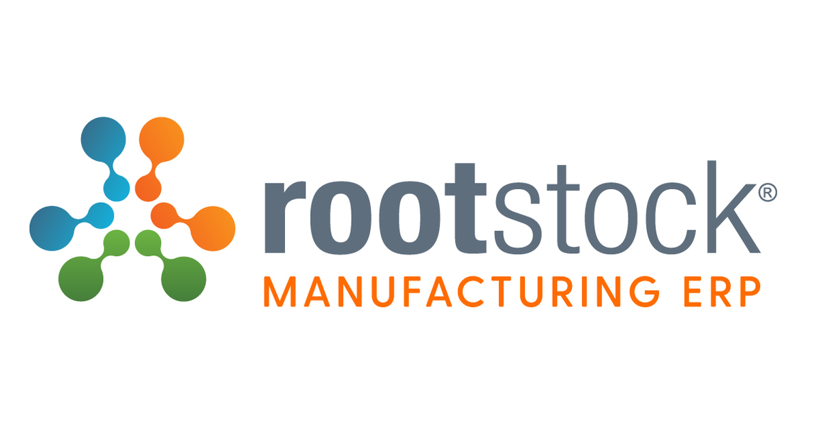
Rootstock
Price Range
$50,000 +
Cost Per User
$125 - $200
Deployments
-
Cloud
-
On-Premise
Financing OptionsSubscription
Minimum Fee to Implement$30,000 +
Installs1,000 +
ArchitectureMulti-Tenant
Core Features
Customer Relationship Management (CRM)
Access key information from one screen
Contacts integrated with fax and email
Create and follow up on tasks
Customer Master Inquiry
Unique Features
Uses differentiation feature of salesforce platform to provide integration and analytics through Salesforce CRM. Cloud-native, mobile-friendly, and well-suited for manufacturers and distributors seeking a unified system.
Limitations
Small base, limited to the Salesforce ecosystem, and restricts flexibility of other platforms. Not fit for companies wanting broad coverage, partners, and a consultant pool.

Deacom
Price Range
$40,000 +
Cost Per User
$100 - $175
Deployments
-
Cloud
-
On-Premise
Financing OptionsSubscription, License
Minimum Fee to Implement$25,000 +
Installs1,000 +
ArchitectureSingle, SQL
Core Features
Customer Relationship Management (CRM)
Access key information from one screen
Contacts integrated with fax and email
Create and follow up on tasks
Customer Master Inquiry
Unique Features
Built for process manufacturers seeking strong compliance, lot tracking, and formula management features. Uses a single-system architecture (all modules native, no bolt-ons), which simplifies management. It supports both on-premise and cloud deployment.
Limitations
Limiting for businesses outside of manufacturing through its narrow industry focus. Not modern as other cloud-native ERPs and smaller in scale; ecosystem and integration.

DDI
Price Range
$15,000 +
Cost Per User
$75 - $150
Deployments
-
Cloud
-
On-Premise
Financing OptionsSubscription, License
Minimum Fee to Implement$25,000 +
Installs1,000 +
ArchitectureWeb, SQL
Core Features
Customer Relationship Management (CRM)
Access key information from one screen
Contacts integrated with fax and email
Create and follow up on tasks
Customer Master Inquiry
Unique Features
Designed for wholesale distributors, offering built-in CRM, counter sales (POS), and warehouse management. Tailored for mid-sized distributors, providing out-of-the-box functionality. Pricing is competitive and implementation is simpler than tier-1 ERPs.
Limitations
Niche and lightweight for larger enterprises due to less advancement, unless paired with third-party tools. Partner ecosystem is small, limited support and scalability compared to larger ERP vendors.

Odoo
Price Range
$10,000 +
Cost Per User
$25 - $40
Deployments
-
Cloud
-
On-Premise
Financing OptionsSubscription
Minimum Fee to Implement$5,000 +
Installs7,000,000 +
ArchitectureOpen Source, Python
Core Features
Customer Relationship Management (CRM)
Access key information from one screen
Contacts integrated with fax and email
Create and follow up on tasks
Customer Master Inquiry
Unique Features
Open-source ERP with low entry costs and flexibility, through enterprise modules. Offers both SaaS and on-premise options, with a modular structure covering CRM to manufacturing. Its customization options make it popular with SMEs and startups.
Limitations
Reliance on partners for implementation and support. Modules are not equally matured and complex enterprises require significant customization.
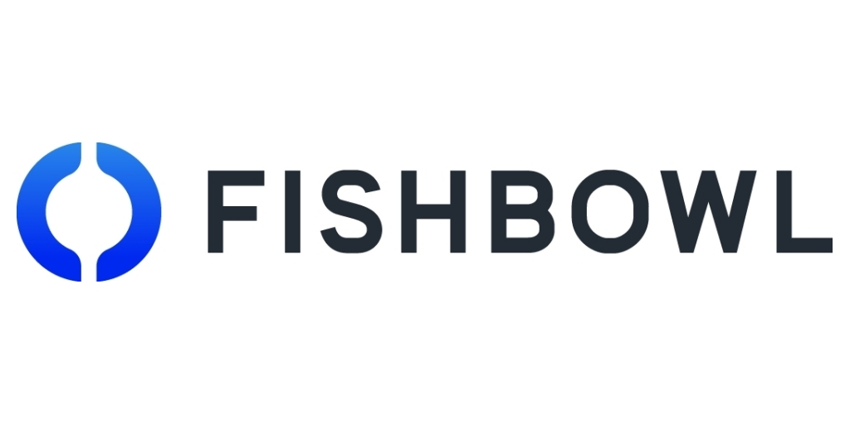
Fishbowl
Price Range
$10,000 +
Cost Per User
$60 - $120
Deployments
-
Cloud
-
On-Premise
Financing OptionsSubscription, License
Minimum Fee to Implement$5,000 +
Installs20,000 +
ArchitectureWeb, SQL
Core Features
Customer Relationship Management (CRM)
Access key information from one screen
Contacts integrated with fax and email
Customer Master Inquiry
Multiple ways to look up customers
Unique Features
Popular with SMBs for its inventory and warehouse management, including barcoding, lot/serial tracking, and manufacturing add-ons. Integrates with QuickBooks and Xero, and easily accessible for small businesses.
Limitations
Not a full ERP and relies on external accounting systems for financials. Not fit for mid-to-large enterprises looking for scalability and all-in-one solution.
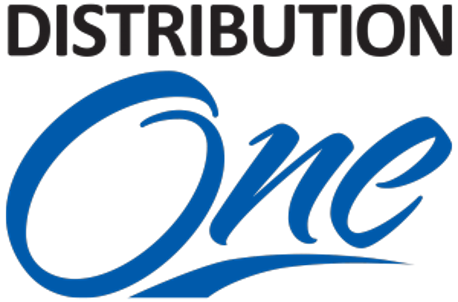
Distribution One
Price Range
$25,000 +
Cost Per User
$100 - $150
Deployments
-
Cloud
-
On-Premise
Financing OptionsSubscription, License
Minimum Fee to Implement$15,000 +
Installs1,000 +
ArchitectureSQL
Core Features
Customer Relationship Management (CRM)
Access key information from one screen
Contacts integrated with fax and email
Create and follow up on tasks
Customer Master Inquiry
Unique Features
Built for wholesale distributors looking for order entry, WMS, pricing, and rebate management. Offers deployment flexibility, faster implementations, and broad distribution coverage.
Limitations
Narrowly focused and not serve companies outside of distribution. Lacks extensibility of large ERPs and the analytics are less advanced than higher-tier vendors.
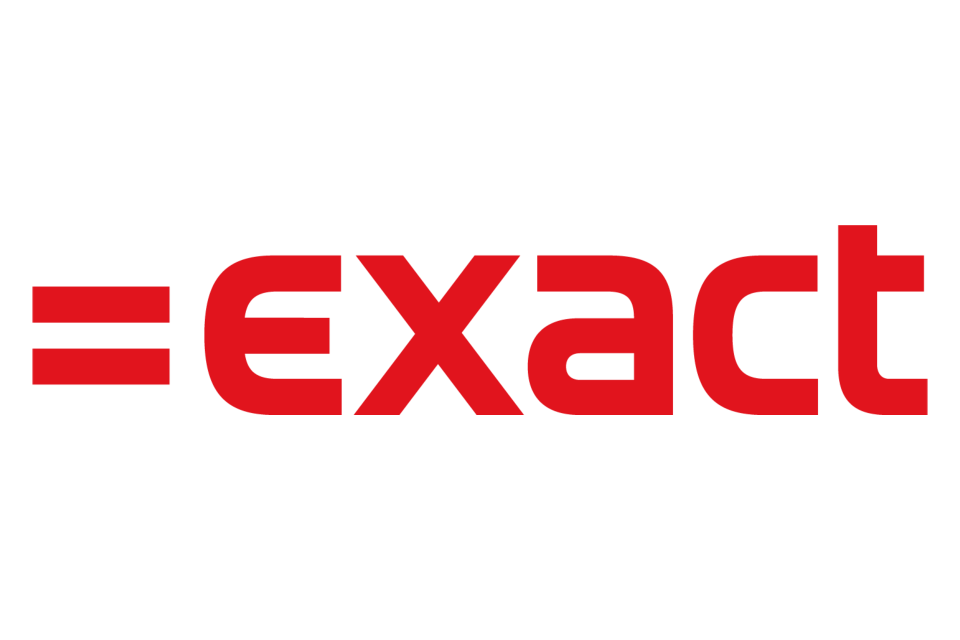
Exact
Price Range
$25,000 +
Cost Per User
$100 - $175
Deployments
-
Cloud
-
On-Premise
Financing OptionsSubscription, License
Minimum Fee to Implement$20,000 +
Installs500,000 +
ArchitectureNET/SQL, Multi-Tenant
Core Features
Customer Relationship Management (CRM)
Access key information from one screen
Contacts integrated with fax and email
Create and follow up on tasks
Customer Master Inquiry
Unique Features
Popular with European SMEs, offering financial management, multi-company support, and integration with CRM and HR tools. Exact Online (cloud) provides easy access for small businesses, while Exact Globe serves mid-sized companies with more complex needs.
Limitations
Not fit for multinational companies due to limited global penetration outside Europe. Is dated in comparison to newer cloud-native ERPs and may not scale as seamlessly for large enterprises.
Prophet 21 – Full Feature List
Customer Relationship Management (CRM)
- Access key information from one screen
- Contacts integrated with fax and email
- Create and follow up on tasks
- Customer Master Inquiry
- Multiple ways to look up customers
- Sales Master Inquiry
- Track opportunities
- Track prospect and client information
Financial Management
- ACH payment to US banks
- Apply cash to multiple invoices
- Auto invoice reconciliation
- Bank/cash reconciliation
- Close journals individually
- Convert foreign currency
- Credit Management
- Dimensional reporting
- Export financial data to Excel
- GL, AR, and AP
- Invoice preferences
- Online cash collections
- Process payments and rebates
- Pull inventory receipt by PO
- Real-time financial info
- Set default purchase accounts
- Transaction drill-down
- Void checks reinstates vendor invoices
- Write financial reports
Inventory Management
- Advanced demand forecasting
- Bin management
- Container receipt tracking
- Convert non-stock items to stock items
- Distributor-managed inventory
- Dynamic purchasing methods
- Identifies and adjusts sporadic demand patterns
- Lead-time and ABC class per location
- Multiple inventory replenishment methods
- Regional distribution centers
- Seasonal usage forecast
- Transfer surplus items between branches
- Vendor returns
- Vendor-managed inventory
Order Entry
- Accessory and substitute items
- Direct Through Stock
- Enter quotes and orders
- Front counter sales
- Kitting and production orders
- Multiple location processing
- Multiple ways to classify orders
- Non-stock item creation
- One screen quote/order entry
- Price and availability requests
- Quote conversion
- Release schedules/blanket orders
- Restricted Items
- Return Material Authorization
- Rewards programs
- Secondary processing
- Serial and lot tracking
- Signature capture (requires hardware)
- Unlimited item information
- View customer past orders and quotes
Pricing
- Changes and exceptions
- Comprehensive pricing matrix
- Contract-/job-based pricing
- Flexible pricing
- Pricing service
- Promotional pricing
- Rebates
- Sales analysis
- Second-pass discounting
Purchasing
- Choose from multiple purchasing options
- Compute landed cost
- Create and track vendor RFQs
- Distribute freight by weight/quantity
- Generate POs for rush/drop shipments
- Supplier Integration and Scorecard
- System-recommended replenishment
- Track vendor rebate programs
- Warehouse Management
Technology
- AI-powered Knowledge Assistant
- Audit trails
- Document linking
- DynaChange Menu Designer
- DynaChange Navigator
- DynaChange Portals
- DynaChange Tab Designer
- DynaChange® Screen Designer
- Email directly from the solution
- Forms Designer
- Integrated Forms
- Integration with Microsoft Word®, Excel®, and Office 365
- Multicompany compatibility
- Notes capabilities
- Portal Views
- Report® Studio
- Security controls
- Set workflow events and alerts
- Time stamp business transactions
Warehouse Management
- Bin replenishment
- Flexible device options
- Group and Zone Picking
- Label printing and bar coding
- Real-time cycle counting
- Tagging/license plating
Oracle NetSuite – Full Feature List
Customer Relationship Management (CRM)
- Access key information from one screen
- Contacts integrated with fax and email
- Create and follow up on tasks
- Customer Master Inquiry
- Multiple ways to look up customers
- Sales Master Inquiry
- Track opportunities
- Track prospect and client information
Financial Management
- ACH payment to US banks
- Apply cash to multiple invoices
- Auto invoice reconciliation
- Bank/cash reconciliation
- Close journals individually
- Convert foreign currency
- Credit Management
- Dimensional reporting
- Export financial data to Excel
- GL, AR, and AP
- Invoice preferences
- Online cash collections
- Process payments and rebates
- Pull inventory receipt by PO
- Real-time financial info
- Set default purchase accounts
- Transaction drill-down
- Write financial reports
Inventory Management
- Advanced demand forecasting
- Bin management
- Container receipt tracking
- Convert non-stock items to stock items
- Distributor-managed inventory
- Dynamic purchasing methods
- Identifies and adjusts sporadic demand patterns
- Lead-time and ABC class per location
- Multiple inventory replenishment methods
- Regional distribution centers
- Seasonal usage forecast
- Transfer surplus items between branches
- Vendor returns
Order Entry
- Accessory and substitute items
- Direct Through Stock
- Enter quotes and orders
- Front counter sales
- Kitting and production orders
- Multiple location processing
- Multiple ways to classify orders
- Non-stock item creation
- One screen quote/order entry
- Price and availability requests
- Quote conversion
- Release schedules/blanket orders
- Restricted Items
- Return Material Authorization
- Secondary processing
- Serial and lot tracking
- Signature capture (requires hardware)
- Unlimited item information
- View customer past orders and quotes
Pricing
- Changes and exceptions
- Comprehensive pricing matrix
- Contract-/job-based pricing
- Flexible pricing
- Pricing service
- Promotional pricing
- Rebates
- Sales analysis
Purchasing
- Choose from multiple purchasing options
- Compute landed cost
- Create and track vendor RFQs
- Distribute freight by weight/quantity
- Generate POs for rush/drop shipments
- Supplier Integration and Scorecard
- System-recommended replenishment
- Track vendor rebate programs
- Warehouse Management
Technology
- Audit trails
- Document linking
- Email directly from the solution
- Forms Designer
- Integrated Forms
- Integration with Microsoft Word®, Excel®, and Office 365
- Multicompany compatibility
- Notes capabilities
- Notes capabilities
- Security controls
- Set workflow events and alerts
- Time stamp business transactions
Warehouse Management
- Bin replenishment
- Flexible device options
- Group and Zone Picking
- Label printing and bar coding
- Real-time cycle counting
SAP – Full Feature List
Customer Relationship Management (CRM)
- Access key information from one screen
- Contacts integrated with fax and email
- Create and follow up on tasks
- Customer Master Inquiry
- Multiple ways to look up customers
- Sales Master Inquiry
- Track opportunities
- Track prospect and client information
Financial Management
- ACH payment to US banks
- Apply cash to multiple invoices
- Auto invoice reconciliation
- Bank/cash reconciliation
- Close journals individually
- Convert foreign currency
- Credit Management
- Dimensional reporting
- Export financial data to Excel
- GL, AR, and AP
- Invoice preferences
- Online cash collections
- Process payments and rebates
- Pull inventory receipt by PO
- Real-time financial info
- Set default purchase accounts
- Transaction drill-down
- Void checks reinstates vendor invoices
- Write financial reports
Inventory Management
- Advanced demand forecasting
- Bin management
- Container receipt tracking
- Convert non-stock items to stock items
- Distributor-managed inventory
- Dynamic purchasing methods
- Identifies and adjusts sporadic demand patterns
- Lead-time and ABC class per location
- Multiple inventory replenishment methods
- Regional distribution centers
- Seasonal usage forecast
- Transfer surplus items between branches
- Vendor returns
- Vendor-managed inventory
Order Entry
- Accessory and substitute items
- Direct Through Stock
- Enter quotes and orders
- Front counter sales
- Multiple location processing
- Multiple ways to classify orders
- Non-stock item creation
- One screen quote/order entry
- Price and availability requests
- Quote conversion
- Release schedules/blanket orders
- Restricted Items
- Return Material Authorization
- Rewards programs
- Secondary processing
- Serial and lot tracking
- Signature capture (requires hardware)
- Unlimited item information
- View customer past orders and quotes
Pricing
- Changes and exceptions
- Comprehensive pricing matrix
- Contract-/job-based pricing
- Flexible pricing
- Pricing service
- Promotional pricing
- Rebates
- Sales analysis
Purchasing
- Choose from multiple purchasing options
- Compute landed cost
- Create and track vendor RFQs
- Distribute freight by weight/quantity
- Generate POs for rush/drop shipments
- Supplier Integration and Scorecard
- System-recommended replenishment
- Track vendor rebate programs
- Warehouse Management
Technology
- AI-powered Knowledge Assistant
- Audit trails
- Document linking
- DynaChange Menu Designer
- DynaChange Navigator
- DynaChange Portals
- DynaChange Tab Designer
- Email directly from the solution
- Forms Designer
- Integrated Forms
- Integration with Microsoft Word®, Excel®, and Office 365
- Multicompany compatibility
- Notes capabilities
- Portal Views
- Report® Studio
- Security controls
- Set workflow events and alerts
- Time stamp business transactions
Warehouse Management
- Bin replenishment
- Flexible device options
- Group and Zone Picking
- Label printing and bar coding
- Real-time cycle counting
- Tagging/license plating
Dynamics 365 – Full Feature List
Customer Relationship Management (CRM)
- Access key information from one screen
- Contacts integrated with fax and email
- Create and follow up on tasks
- Customer Master Inquiry
- Multiple ways to look up customers
- Sales Master Inquiry
- Track opportunities
- Track prospect and client information
Financial Management
- ACH payment to US banks
- Apply cash to multiple invoices
- Auto invoice reconciliation
- Bank/cash reconciliation
- Close journals individually
- Convert foreign currency
- Credit Management
- Dimensional reporting
- Export financial data to Excel
- GL, AR, and AP
- Invoice preferences
- Online cash collections
- Process payments and rebates
- Pull inventory receipt by PO
- Real-time financial info
- Set default purchase accounts
- Transaction drill-down
- Void checks reinstates vendor invoices
- Write financial reports
Inventory Management
- Advanced demand forecasting
- Bin management
- Container receipt tracking
- Convert non-stock items to stock items
- Distributor-managed inventory
- Dynamic purchasing methods
- Identifies and adjusts sporadic demand patterns
- Lead-time and ABC class per location
- Multiple inventory replenishment methods
- Regional distribution centers
- Seasonal usage forecast
- Transfer surplus items between branches
- Vendor returns
- Vendor-managed inventory
Order Entry
- Accessory and substitute items
- Direct Through Stock
- Enter quotes and orders
- Front counter sales
- Kitting and production orders
- Multiple location processing
- Multiple ways to classify orders
- Non-stock item creation
- One screen quote/order entry
- Price and availability requests
- Quote conversion
- Release schedules/blanket orders
- Restricted Items
- Return Material Authorization
- Rewards programs
- Secondary processing
- Serial and lot tracking
- Signature capture (requires hardware)
- Unlimited item information
- View customer past orders and quotes
Pricing
- Changes and exceptions
- Comprehensive pricing matrix
- Contract-/job-based pricing
- Flexible pricing
- Pricing service
- Promotional pricing
- Rebates
- Sales analysis
Purchasing
- Choose from multiple purchasing options
- Compute landed cost
- Create and track vendor RFQs
- Distribute freight by weight/quantity
- Generate POs for rush/drop shipments
- Supplier Integration and Scorecard
- System-recommended replenishment
- Track vendor rebate programs
- Warehouse Management
Technology
- AI-powered Knowledge Assistant
- Audit trails
- Document linking
- Email directly from the solution
- Forms Designer
- Integrated Forms
- Integration with Microsoft Word®, Excel®, and Office 365
- Multicompany compatibility
- Notes capabilities
- Portal Views
- Report® Studio
- Security controls
- Set workflow events and alerts
- Time stamp business transactions
Warehouse Management
- Bin replenishment
- Flexible device options
- Group and Zone Picking
- Label printing and bar coding
- Real-time cycle counting
- Tagging/license plating
Infor – Full Feature List
Customer Relationship Management (CRM)
- Access key information from one screen
- Contacts integrated with fax and email
- Create and follow up on tasks
- Customer Master Inquiry
- Multiple ways to look up customers
- Sales Master Inquiry
- Track opportunities
- Track prospect and client information
Financial Management
- ACH payment to US banks
- Apply cash to multiple invoices
- Auto invoice reconciliation
- Bank/cash reconciliation
- Close journals individually
- Convert foreign currency
- Credit Management
- Dimensional reporting
- Export financial data to Excel
- GL, AR, and AP
- Invoice preferences
- Online cash collections
- Process payments and rebates
- Pull inventory receipt by PO
- Real-time financial info
- Set default purchase accounts
- Transaction drill-down
- Void checks reinstates vendor invoices
- Write financial reports
Inventory Management
- Advanced demand forecasting
- Bin management
- Container receipt tracking
- Convert non-stock items to stock items
- Distributor-managed inventory
- Dynamic purchasing methods
- Identifies and adjusts sporadic demand patterns
- Lead-time and ABC class per location
- Multiple inventory replenishment methods
- Regional distribution centers
- Seasonal usage forecast
- Transfer surplus items between branches
- Vendor returns
- Vendor-managed inventory
Order Entry
- Accessory and substitute items
- Direct Through Stock
- Enter quotes and orders
- Front counter sales
- Kitting and production orders
- Multiple location processing
- Multiple ways to classify orders
- Non-stock item creation
- One screen quote/order entry
- Price and availability requests
- Quote conversion
- Release schedules/blanket orders
- Restricted Items
- Return Material Authorization
- Rewards programs
- Secondary processing
- Serial and lot tracking
- Signature capture (requires hardware)
- Unlimited item information
- View customer past orders and quotes
Pricing
- Changes and exceptions
- Comprehensive pricing matrix
- Contract-/job-based pricing
- Flexible pricing
- Pricing service
- Promotional pricing
- Rebates
- Sales analysis
Purchasing
- Choose from multiple purchasing options
- Compute landed cost
- Create and track vendor RFQs
- Distribute freight by weight/quantity
- Generate POs for rush/drop shipments
- Supplier Integration and Scorecard
- System-recommended replenishment
- Track vendor rebate programs
- Warehouse Management
Technology
- AI-powered Knowledge Assistant
- Audit trails
- Document linking
- Email directly from the solution
- Forms Designer
- Integrated Forms
- Integration with Microsoft Word®, Excel®, and Office 365
- Multicompany compatibility
- Notes capabilities
- Portal Views
- Security controls
- Set workflow events and alerts
- Time stamp business transactions
Warehouse Management
- Bin replenishment
- Flexible device options
- Group and Zone Picking
- Label printing and bar coding
- Real-time cycle counting
- Tagging/license plating
Acumatica – Full Feature List
Customer Relationship Management (CRM)
- Access key information from one screen
- Contacts integrated with fax and email
- Create and follow up on tasks
- Customer Master Inquiry
- Multiple ways to look up customers
- Sales Master Inquiry
- Track opportunities
- Track prospect and client information
Financial Management
- ACH payment to US banks
- Apply cash to multiple invoices
- Auto invoice reconciliation
- Bank/cash reconciliation
- Close journals individually
- Convert foreign currency
- Credit Management
- Dimensional reporting
- Export financial data to Excel
- GL, AR, and AP
- Invoice preferences
- Online cash collections
- Process payments and rebates
- Pull inventory receipt by PO
- Real-time financial info
- Set default purchase accounts
- Transaction drill-down
- Void checks reinstates vendor invoices
- Write financial reports
Inventory Management
- Bin management
- Container receipt tracking
- Convert non-stock items to stock items
- Distributor-managed inventory
- Dynamic purchasing methods
- Identifies and adjusts sporadic demand patterns
- Lead-time and ABC class per location
- Multiple inventory replenishment methods
- Regional distribution centers
- Seasonal usage forecast
- Transfer surplus items between branches
- Vendor returns
- Vendor-managed inventory
Order Entry
- Accessory and substitute items
- Direct Through Stock
- Enter quotes and orders
- Front counter sales
- Kitting and production orders
- Multiple location processing
- Multiple ways to classify orders
- Non-stock item creation
- One screen quote/order entry
- Price and availability requests
- Quote conversion
- Release schedules/blanket orders
- Restricted Items
- Return Material Authorization
- Secondary processing
- Serial and lot tracking
- Signature capture (requires hardware)
- Unlimited item information
- View customer past orders and quotes
Pricing
- Changes and exceptions
- Comprehensive pricing matrix
- Contract-/job-based pricing
- Flexible pricing
- Pricing service
- Promotional pricing
- Rebates
- Sales analysis
Purchasing
- Choose from multiple purchasing options
- Compute landed cost
- Create and track vendor RFQs
- Distribute freight by weight/quantity
- Generate POs for rush/drop shipments
- Supplier Integration and Scorecard
- System-recommended replenishment
- Track vendor rebate programs
- Warehouse Management
Technology
- Audit trails
- Document linking
- Email directly from the solution
- Forms Designer
- Integrated Forms
- Integration with Microsoft Word®, Excel®, and Office 365
- Multicompany compatibility
- Notes capabilities
- Portal Views
- Report® Studio
- Security controls
- Set workflow events and alerts
- Time stamp business transactions
Warehouse Management
- Bin replenishment
- Flexible device options
- Group and Zone Picking
- Label printing and bar coding
- Real-time cycle counting
- Tagging/license plating
Sage X3 – Full Feature List
Customer Relationship Management (CRM)
- Access key information from one screen
- Contacts integrated with fax and email
- Create and follow up on tasks
- Customer Master Inquiry
- Multiple ways to look up customers
- Sales Master Inquiry
- Track opportunities
- Track prospect and client information
Financial Management
- ACH payment to US banks
- Apply cash to multiple invoices
- Auto invoice reconciliation
- Bank/cash reconciliation
- Close journals individually
- Convert foreign currency
- Credit Management
- Dimensional reporting
- Export financial data to Excel
- GL, AR, and AP
- Invoice preferences
- Online cash collections
- Process payments and rebates
- Pull inventory receipt by PO
- Real-time financial info
- Set default purchase accounts
- Transaction drill-down
- Void checks reinstates vendor invoices
- Write financial reports
Inventory Management
- Bin management
- Container receipt tracking
- Convert non-stock items to stock items
- Distributor-managed inventory
- Dynamic purchasing methods
- Identifies and adjusts sporadic demand patterns
- Lead-time and ABC class per location
- Multiple inventory replenishment methods
- Regional distribution centers
- Seasonal usage forecast
- Transfer surplus items between branches
- Vendor returns
- Vendor-managed inventory
Order Entry
- Accessory and substitute items
- Direct Through Stock
- Enter quotes and orders
- Kitting and production orders
- Multiple location processing
- Multiple ways to classify orders
- Non-stock item creation
- One screen quote/order entry
- Price and availability requests
- Quote conversion
- Release schedules/blanket orders
- Restricted Items
- Return Material Authorization
- Secondary processing
- Serial and lot tracking
- Unlimited item information
- View customer past orders and quotes
Pricing
- Changes and exceptions
- Comprehensive pricing matrix
- Contract-/job-based pricing
- Flexible pricing
- Pricing service
- Promotional pricing
- Rebates
- Sales analysis
- Second-pass discounting
Purchasing
- Choose from multiple purchasing options
- Compute landed cost
- Create and track vendor RFQs
- Distribute freight by weight/quantity
- Generate POs for rush/drop shipments
- Supplier Integration and Scorecard
- System-recommended replenishment
- Track vendor rebate programs
- Warehouse Management
Technology
- Audit trails
- Document linking
- Email directly from the solution
- Forms Designer
- Integrated Forms
- Integration with Microsoft Word®, Excel®, and Office 365
- Multicompany compatibility
- Notes capabilities
- Portal Views
- Report® Studio
- Security controls
- Set workflow events and alerts
- Time stamp business transactions
Warehouse Management
- Bin replenishment
- Flexible device options
- Group and Zone Picking
- Label printing and bar coding
- Real-time cycle counting
- Tagging/license plating
IFS – Full Feature List
Customer Relationship Management (CRM)
- Access key information from one screen
- Contacts integrated with fax and email
- Create and follow up on tasks
- Customer Master Inquiry
- Multiple ways to look up customers
- Sales Master Inquiry
- Track opportunities
- Track prospect and client information
Financial Management
- ACH payment to US banks
- Apply cash to multiple invoices
- Auto invoice reconciliation
- Bank/cash reconciliation
- Close journals individually
- Convert foreign currency
- Credit Management
- Dimensional reporting
- Export financial data to Excel
- GL, AR, and AP
- Invoice preferences
- Online cash collections
- Process payments and rebates
- Pull inventory receipt by PO
- Real-time financial info
- Set default purchase accounts
- Transaction drill-down
- Void checks reinstates vendor invoices
- Write financial reports
Inventory Management
- Advanced demand forecasting
- Bin management
- Container receipt tracking
- Convert non-stock items to stock items
- Distributor-managed inventory
- Dynamic purchasing methods
- Identifies and adjusts sporadic demand patterns
- Lead-time and ABC class per location
- Multiple inventory replenishment methods
- Regional distribution centers
- Seasonal usage forecast
- Transfer surplus items between branches
- Vendor returns
- Vendor-managed inventory
Order Entry
- Accessory and substitute items
- Direct Through Stock
- Enter quotes and orders
- Kitting and production orders
- Multiple location processing
- Multiple ways to classify orders
- Non-stock item creation
- One screen quote/order entry
- Price and availability requests
- Quote conversion
- Release schedules/blanket orders
- Restricted Items
- Return Material Authorization
- Rewards programs
- Secondary processing
- Serial and lot tracking
- Signature capture (requires hardware)
- Unlimited item information
- View customer past orders and quotes
Pricing
- Changes and exceptions
- Comprehensive pricing matrix
- Contract-/job-based pricing
- Flexible pricing
- Pricing service
- Promotional pricing
- Rebates
- Sales analysis
- Second-pass discounting
Purchasing
- Choose from multiple purchasing options
- Compute landed cost
- Create and track vendor RFQs
- Distribute freight by weight/quantity
- Generate POs for rush/drop shipments
- Supplier Integration and Scorecard
- System-recommended replenishment
- Track vendor rebate programs
- Warehouse Management
Technology
- AI-powered Knowledge Assistant
- Audit trails
- Document linking
- Email directly from the solution
- Forms Designer
- Integrated Forms
- Integration with Microsoft Word®, Excel®, and Office 365
- Multicompany compatibility
- Notes capabilities
- Portal Views
- Report® Studio
- Security controls
- Set workflow events and alerts
- Time stamp business transactions
Warehouse Management
- Bin replenishment
- Flexible device options
- Group and Zone Picking
- Label printing and bar coding
- Real-time cycle counting
- Tagging/license plating
SYSPRO – Full Feature List
Customer Relationship Management (CRM)
- Access key information from one screen
- Contacts integrated with fax and email
- Create and follow up on tasks
- Customer Master Inquiry
- Multiple ways to look up customers
- Sales Master Inquiry
- Track opportunities
- Track prospect and client information
Financial Management
- ACH payment to US banks
- Apply cash to multiple invoices
- Auto invoice reconciliation
- Bank/cash reconciliation
- Close journals individually
- Convert foreign currency
- Credit Management
- Dimensional reporting
- Export financial data to Excel
- GL, AR, and AP
- Invoice preferences
- Online cash collections
- Process payments and rebates
- Pull inventory receipt by PO
- Real-time financial info
- Set default purchase accounts
- Transaction drill-down
- Void checks reinstates vendor invoices
- Write financial reports
Inventory Management
- Advanced demand forecasting
- Bin management
- Container receipt tracking
- Convert non-stock items to stock items
- Distributor-managed inventory
- Dynamic purchasing methods
- Identifies and adjusts sporadic demand patterns
- Lead-time and ABC class per location
- Multiple inventory replenishment methods
- Regional distribution centers
- Seasonal usage forecast
- Transfer surplus items between branches
- Vendor returns
- Vendor-managed inventory
Order Entry
- Accessory and substitute items
- Direct Through Stock
- Enter quotes and orders
- Front counter sales
- Kitting and production orders
- Multiple location processing
- Multiple ways to classify orders
- Non-stock item creation
- One screen quote/order entry
- Price and availability requests
- Quote conversion
- Release schedules/blanket orders
- Restricted Items
- Return Material Authorization
- Rewards programs
- Secondary processing
- Serial and lot tracking
- Signature capture (requires hardware)
- Unlimited item information
- View customer past orders and quotes
Pricing
- Changes and exceptions
- Comprehensive pricing matrix
- Contract-/job-based pricing
- Flexible pricing
- Pricing service
- Promotional pricing
- Rebates
- Sales analysis
- Second-pass discounting
Purchasing
- Choose from multiple purchasing options
- Compute landed cost
- Create and track vendor RFQs
- Distribute freight by weight/quantity
- Generate POs for rush/drop shipments
- Supplier Integration and Scorecard
- System-recommended replenishment
- Track vendor rebate programs
- Warehouse Management
Technology
- Audit trails
- Document linking
- Email directly from the solution
- Forms Designer
- Integrated Forms
- Integration with Microsoft Word®, Excel®, and Office 365
- Multicompany compatibility
- Notes capabilities
- Portal Views
- Report® Studio
- Security controls
- Set workflow events and alerts
- Time stamp business transactions
Warehouse Management
- Bin replenishment
- Flexible device options
- Group and Zone Picking
- Label printing and bar coding
- Real-time cycle counting
- Tagging/license plating
Rootstock – Full Feature List
Customer Relationship Management (CRM)
- Access key information from one screen
- Contacts integrated with fax and email
- Create and follow up on tasks
- Customer Master Inquiry
- Multiple ways to look up customers
- Sales Master Inquiry
- Track opportunities
- Track prospect and client information
Financial Management
- ACH payment to US banks
- Apply cash to multiple invoices
- Auto invoice reconciliation
- Bank/cash reconciliation
- Close journals individually
- Convert foreign currency
- Credit Management
- Dimensional reporting
- Export financial data to Excel
- GL, AR, and AP
- Invoice preferences
- Online cash collections
- Process payments and rebates
- Pull inventory receipt by PO
- Real-time financial info
- Set default purchase accounts
- Transaction drill-down
- Void checks reinstates vendor invoices
- Write financial reports
Inventory Management
- Advanced demand forecasting
- Bin management
- Container receipt tracking
- Convert non-stock items to stock items
- Distributor-managed inventory
- Dynamic purchasing methods
- Identifies and adjusts sporadic demand patterns
- Lead-time and ABC class per location
- Multiple inventory replenishment methods
- Regional distribution centers
- Seasonal usage forecast
- Transfer surplus items between branches
- Vendor returns
- Vendor-managed inventory
Order Entry
- Accessory and substitute items
- Direct Through Stock
- Enter quotes and orders
- Front counter sales
- Kitting and production orders
- Multiple location processing
- Multiple ways to classify orders
- Non-stock item creation
- One screen quote/order entry
- Price and availability requests
- Quote conversion
- Release schedules/blanket orders
- Restricted Items
- Return Material Authorization
- Rewards programs
- Secondary processing
- Serial and lot tracking
- Signature capture (requires hardware)
- Unlimited item information
- View customer past orders and quotes
Pricing
- Changes and exceptions
- Comprehensive pricing matrix
- Contract-/job-based pricing
- Flexible pricing
- Pricing service
- Promotional pricing
- Rebates
- Sales analysis
- Second-pass discounting
Purchasing
- Choose from multiple purchasing options
- Compute landed cost
- Create and track vendor RFQs
- Distribute freight by weight/quantity
- Generate POs for rush/drop shipments
- Supplier Integration and Scorecard
- System-recommended replenishment
- Track vendor rebate programs
- Warehouse Management
Technology
- AI-powered Knowledge Assistant
- Audit trails
- Document linking
- Email directly from the solution
- Forms Designer
- Integrated Forms
- Integration with Microsoft Word®, Excel®, and Office 365
- Multicompany compatibility
- Notes capabilities
- Portal Views
- Security controls
- Set workflow events and alerts
- Time stamp business transactions
Warehouse Management
- Bin replenishment
- Flexible device options
- Group and Zone Picking
- Label printing and bar coding
- Real-time cycle counting
- Tagging/license plating
Deacom – Full Feature List
Customer Relationship Management (CRM)
- Access key information from one screen
- Contacts integrated with fax and email
- Create and follow up on tasks
- Customer Master Inquiry
- Multiple ways to look up customers
- Sales Master Inquiry
- Track opportunities
- Track prospect and client information
Financial Management
- ACH payment to US banks
- Apply cash to multiple invoices
- Auto invoice reconciliation
- Bank/cash reconciliation
- Close journals individually
- Convert foreign currency
- Credit Management
- Dimensional reporting
- Export financial data to Excel
- GL, AR, and AP
- Invoice preferences
- Online cash collections
- Process payments and rebates
- Pull inventory receipt by PO
- Real-time financial info
- Set default purchase accounts
- Transaction drill-down
- Void checks reinstates vendor invoices
- Write financial reports
Inventory Management
- Bin management
- Container receipt tracking
- Convert non-stock items to stock items
- Distributor-managed inventory
- Dynamic purchasing methods
- Identifies and adjusts sporadic demand patterns
- Lead-time and ABC class per location
- Multiple inventory replenishment methods
- Regional distribution centers
- Seasonal usage forecast
- Transfer surplus items between branches
- Vendor returns
- Vendor-managed inventory
Order Entry
- Accessory and substitute items
- Direct Through Stock
- Enter quotes and orders
- Kitting and production orders
- Multiple location processing
- Multiple ways to classify orders
- Non-stock item creation
- One screen quote/order entry
- Price and availability requests
- Quote conversion
- Release schedules/blanket orders
- Restricted Items
- Return Material Authorization
- Secondary processing
- Serial and lot tracking
- Signature capture (requires hardware)
- Unlimited item information
- View customer past orders and quotes
Pricing
- Changes and exceptions
- Comprehensive pricing matrix
- Contract-/job-based pricing
- Flexible pricing
- Pricing service
- Promotional pricing
- Rebates
- Sales analysis
Purchasing
- Choose from multiple purchasing options
- Compute landed cost
- Create and track vendor RFQs
- Distribute freight by weight/quantity
- Generate POs for rush/drop shipments
- System-recommended replenishment
- Track vendor rebate programs
- Warehouse Management
Technology
- Audit trails
- Document linking
- Email directly from the solution
- Forms Designer
- Integrated Forms
- Integration with Microsoft Word®, Excel®, and Office 365
- Multicompany compatibility
- Notes capabilities
- Portal Views
- Security controls
- Set workflow events and alerts
- Time stamp business transactions
Warehouse Management
- Bin replenishment
- Flexible device options
- Group and Zone Picking
- Label printing and bar coding
- Real-time cycle counting
- Tagging/license plating
DDI – Full Feature List
Customer Relationship Management (CRM)
- Access key information from one screen
- Contacts integrated with fax and email
- Create and follow up on tasks
- Customer Master Inquiry
- Multiple ways to look up customers
- Sales Master Inquiry
- Track opportunities
- Track prospect and client information
Financial Management
- ACH payment to US banks
- Apply cash to multiple invoices
- Auto invoice reconciliation
- Bank/cash reconciliation
- Close journals individually
- Convert foreign currency
- Credit Management
- Dimensional reporting
- Export financial data to Excel
- GL, AR, and AP
- Invoice preferences
- Online cash collections
- Process payments and rebates
- Pull inventory receipt by PO
- Real-time financial info
- Set default purchase accounts
- Transaction drill-down
- Void checks reinstates vendor invoices
- Write financial reports
Inventory Management
- Advanced demand forecasting
- Bin management
- Container receipt tracking
- Convert non-stock items to stock items
- Distributor-managed inventory
- Dynamic purchasing methods
- Identifies and adjusts sporadic demand patterns
- Lead-time and ABC class per location
- Multiple inventory replenishment methods
- Regional distribution centers
- Seasonal usage forecast
- Transfer surplus items between branches
- Vendor returns
- Vendor-managed inventory
Order Entry
- Accessory and substitute items
- Direct Through Stock
- Enter quotes and orders
- Front counter sales
- Kitting and production orders
- Multiple location processing
- Multiple ways to classify orders
- Non-stock item creation
- One screen quote/order entry
- Price and availability requests
- Quote conversion
- Release schedules/blanket orders
- Restricted Items
- Return Material Authorization
- Rewards programs
- Serial and lot tracking
- Signature capture (requires hardware)
- Unlimited item information
- View customer past orders and quotes
Pricing
- Changes and exceptions
- Comprehensive pricing matrix
- Contract-/job-based pricing
- Flexible pricing
- Pricing service
- Promotional pricing
- Rebates
- Sales analysis
- Second-pass discounting
Purchasing
- Choose from multiple purchasing options
- Compute landed cost
- Create and track vendor RFQs
- Distribute freight by weight/quantity
- Generate POs for rush/drop shipments
- Supplier Integration and Scorecard
- System-recommended replenishment
- Track vendor rebate programs
- Warehouse Management
Technology
- Audit trails
- Document linking
- Email directly from the solution
- Forms Designer
- Integrated Forms
- Integration with Microsoft Word®, Excel®, and Office 365
- Multicompany compatibility
- Notes capabilities
- Portal Views
- Report® Studio
- Security controls
- Set workflow events and alerts
- Time stamp business transactions
Warehouse Management
- Bin replenishment
- Flexible device options
- Group and Zone Picking
- Label printing and bar coding
- Real-time cycle counting
- Tagging/license plating
Odoo – Full Feature List
Customer Relationship Management (CRM)
- Access key information from one screen
- Contacts integrated with fax and email
- Create and follow up on tasks
- Customer Master Inquiry
- Multiple ways to look up customers
- Sales Master Inquiry
- Track opportunities
- Track prospect and client information
Financial Management
- ACH payment to US banks
- Apply cash to multiple invoices
- Auto invoice reconciliation
- Bank/cash reconciliation
- Close journals individually
- Convert foreign currency
- Credit Management
- Dimensional reporting
- Export financial data to Excel
- GL, AR, and AP
- Invoice preferences
- Online cash collections
- Process payments and rebates
- Pull inventory receipt by PO
- Real-time financial info
- Set default purchase accounts
- Transaction drill-down
- Void checks reinstates vendor invoices
- Write financial reports
Inventory Management
- Bin management
- Container receipt tracking
- Convert non-stock items to stock items
- Distributor-managed inventory
- Dynamic purchasing methods
- Lead-time and ABC class per location
- Multiple inventory replenishment methods
- Regional distribution centers
- Seasonal usage forecast
- Transfer surplus items between branches
- Vendor returns
- Vendor-managed inventory
Order Entry
- Accessory and substitute items
- Direct Through Stock
- Enter quotes and orders
- Front counter sales
- Kitting and production orders
- Multiple location processing
- Multiple ways to classify orders
- Non-stock item creation
- One screen quote/order entry
- Price and availability requests
- Quote conversion
- Release schedules/blanket orders
- Restricted Items
- Return Material Authorization
- Rewards programs
- Secondary processing
- Serial and lot tracking
- Signature capture (requires hardware)
- Unlimited item information
- View customer past orders and quotes
Pricing
- Changes and exceptions
- Comprehensive pricing matrix
- Contract-/job-based pricing
- Flexible pricing
- Pricing service
- Promotional pricing
- Rebates
- Sales analysis
- Second-pass discounting
Purchasing
- Choose from multiple purchasing options
- Compute landed cost
- Create and track vendor RFQs
- Distribute freight by weight/quantity
- Generate POs for rush/drop shipments
- System-recommended replenishment
- Track vendor rebate programs
- Warehouse Management
Technology
- AI-powered Knowledge Assistant
- Audit trails
- Document linking
- Email directly from the solution
- Forms Designer
- Integrated Forms
- Integration with Microsoft Word®, Excel®, and Office 365
- Multicompany compatibility
- Notes capabilities
- Portal Views
- Report® Studio
- Security controls
- Set workflow events and alerts
- Time stamp business transactions
Warehouse Management
- Bin replenishment
- Flexible device options
- Group and Zone Picking
- Label printing and bar coding
- Real-time cycle counting
Fishbowl – Full Feature List
Customer Relationship Management (CRM)
- Access key information from one screen
- Contacts integrated with fax and email
- Customer Master Inquiry
- Multiple ways to look up customers
- Sales Master Inquiry
- Track prospect and client information
Financial Management
- Convert foreign currency
- Export financial data to Excel
- Invoice preferences
- Pull inventory receipt by PO
- Real-time financial info
- Transaction drill-down
Inventory Management
- Bin management
- Convert non-stock items to stock items
- Distributor-managed inventory
- Dynamic purchasing methods
- Lead-time and ABC class per location
- Multiple inventory replenishment methods
- Regional distribution centers
- Transfer surplus items between branches
- Vendor returns
Order Entry
- Accessory and substitute items
- Direct Through Stock
- Enter quotes and orders
- Front counter sales
- Kitting and production orders
- Multiple location processing
- Multiple ways to classify orders
- Non-stock item creation
- One screen quote/order entry
- Price and availability requests
- Quote conversion
- Restricted Items
- Return Material Authorization
- Serial and lot tracking
- Signature capture (requires hardware)
- Unlimited item information
- View customer past orders and quotes
Pricing
- Changes and exceptions
- Comprehensive pricing matrix
- Flexible pricing
- Pricing service
- Promotional pricing
- Rebates
- Sales analysis
Purchasing
- Choose from multiple purchasing options
- Compute landed cost
- Create and track vendor RFQs
- Distribute freight by weight/quantity
- Generate POs for rush/drop shipments
- System-recommended replenishment
- Warehouse Management
Technology
- Audit trails
- Document linking
- Email directly from the solution
- Forms Designer
- Integrated Forms
- Integration with Microsoft Word®, Excel®, and Office 365
- Multicompany compatibility
- Notes capabilities
- Report® Studio
- Security controls
- Time stamp business transactions
Warehouse Management
- Bin replenishment
- Flexible device options
- Group and Zone Picking
- Label printing and bar coding
- Real-time cycle counting
Distribution One – Full Feature List
Customer Relationship Management (CRM)
- Access key information from one screen
- Contacts integrated with fax and email
- Create and follow up on tasks
- Customer Master Inquiry
- Multiple ways to look up customers
- Sales Master Inquiry
- Track opportunities
- Track prospect and client information
Financial Management
- ACH payment to US banks
- Apply cash to multiple invoices
- Auto invoice reconciliation
- Bank/cash reconciliation
- Close journals individually
- Convert foreign currency
- Credit Management
- Dimensional reporting
- Export financial data to Excel
- GL, AR, and AP
- Invoice preferences
- Online cash collections
- Process payments and rebates
- Pull inventory receipt by PO
- Real-time financial info
- Set default purchase accounts
- Transaction drill-down
- Void checks reinstates vendor invoices
- Write financial reports
Inventory Management
- Bin management
- Container receipt tracking
- Convert non-stock items to stock items
- Distributor-managed inventory
- Dynamic purchasing methods
- Lead-time and ABC class per location
- Multiple inventory replenishment methods
- Regional distribution centers
- Seasonal usage forecast
- Transfer surplus items between branches
- Vendor returns
- Vendor-managed inventory
Order Entry
- Accessory and substitute items
- Direct Through Stock
- Enter quotes and orders
- Front counter sales
- Kitting and production orders
- Multiple location processing
- Multiple ways to classify orders
- Non-stock item creation
- One screen quote/order entry
- Price and availability requests
- Quote conversion
- Release schedules/blanket orders
- Restricted Items
- Return Material Authorization
- Rewards programs
- Serial and lot tracking
- Signature capture (requires hardware)
- Unlimited item information
- View customer past orders and quotes
Pricing
- Changes and exceptions
- Comprehensive pricing matrix
- Contract-/job-based pricing
- Flexible pricing
- Pricing service
- Promotional pricing
- Rebates
- Sales analysis
- Second-pass discounting
Purchasing
- Choose from multiple purchasing options
- Compute landed cost
- Create and track vendor RFQs
- Distribute freight by weight/quantity
- Generate POs for rush/drop shipments
- System-recommended replenishment
- Track vendor rebate programs
- Warehouse Management
Technology
- Audit trails
- Document linking
- Email directly from the solution
- Integrated Forms
- Integration with Microsoft Word®, Excel®, and Office 365
- Multicompany compatibility
- Notes capabilities
- Portal Views
- Report® Studio
- Security controls
- Set workflow events and alerts
- Time stamp business transactions
Warehouse Management
- Bin replenishment
- Flexible device options
- Group and Zone Picking
- Label printing and bar coding
- Real-time cycle counting
- Tagging/license plating
Exact – Full Feature List
Customer Relationship Management (CRM)
- Access key information from one screen
- Contacts integrated with fax and email
- Create and follow up on tasks
- Customer Master Inquiry
- Multiple ways to look up customers
- Sales Master Inquiry
- Track opportunities
- Track prospect and client information
Financial Management
- ACH payment to US banks
- Apply cash to multiple invoices
- Auto invoice reconciliation
- Bank/cash reconciliation
- Close journals individually
- Convert foreign currency
- Credit Management
- Dimensional reporting
- Export financial data to Excel
- GL, AR, and AP
- Invoice preferences
- Online cash collections
- Process payments and rebates
- Pull inventory receipt by PO
- Real-time financial info
- Set default purchase accounts
- Transaction drill-down
- Void checks reinstates vendor invoices
- Write financial reports
Inventory Management
- Bin management
- Container receipt tracking
- Convert non-stock items to stock items
- Distributor-managed inventory
- Dynamic purchasing methods
- Lead-time and ABC class per location
- Multiple inventory replenishment methods
- Regional distribution centers
- Seasonal usage forecast
- Transfer surplus items between branches
- Vendor returns
- Vendor-managed inventory
Order Entry
- Accessory and substitute items
- Direct Through Stock
- Enter quotes and orders
- Front counter sales
- Kitting and production orders
- Multiple location processing
- Multiple ways to classify orders
- Non-stock item creation
- One screen quote/order entry
- Price and availability requests
- Quote conversion
- Release schedules/blanket orders
- Restricted Items
- Return Material Authorization
- Rewards programs
- Secondary processing
- Serial and lot tracking
- Signature capture (requires hardware)
- Unlimited item information
- View customer past orders and quotes
Pricing
- Changes and exceptions
- Comprehensive pricing matrix
- Contract-/job-based pricing
- Flexible pricing
- Pricing service
- Promotional pricing
- Rebates
- Sales analysis
Purchasing
- Choose from multiple purchasing options
- Compute landed cost
- Create and track vendor RFQs
- Distribute freight by weight/quantity
- Generate POs for rush/drop shipments
- System-recommended replenishment
- Track vendor rebate programs
- Warehouse Management
Technology
- Audit trails
- Document linking
- Email directly from the solution
- Forms Designer
- Integrated Forms
- Integration with Microsoft Word®, Excel®, and Office 365
- Multicompany compatibility
- Notes capabilities
- Portal Views
- Security controls
- Set workflow events and alerts
- Time stamp business transactions
Warehouse Management
- Bin replenishment
- Flexible device options
- Group and Zone Picking
- Label printing and bar coding
- Real-time cycle counting
- Tagging/license plating

